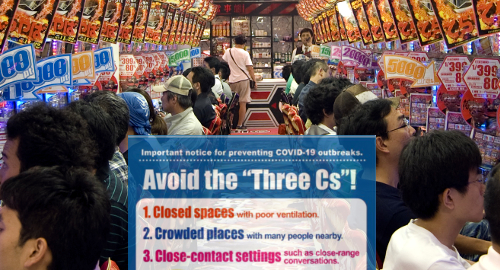 Japan’s pachinko operators could be in for a bruising if they don’t start respecting the government’s call for social distancing measures to limit the spread of the COVID-19 coronavirus.
Japan’s pachinko operators could be in for a bruising if they don’t start respecting the government’s call for social distancing measures to limit the spread of the COVID-19 coronavirus.
Earlier this month, Japan’s Prime Minister Shinzo Abe declared a national emergency over the COVID-19 pandemic. Abe had come under criticism for his nation’s initial lackadaisical approach to social distancing amid the subsequent announcement of a spike in the number of infections.
Perhaps reflecting Abe’s delayed conversion to COVID-19 foe, and the fact that his emergency order didn’t give governors in certain prefectures the authority to enforce the order, numerous public facilities have yet to alter their practices. That includes pachinko parlors, the ubiquitous arcades that serve as pseudo-gambling in a country that doesn’t allow much legal gambling.
Two weeks ago, local media reported on one pachinko venue that switched off some of its exterior signs and lights but otherwise didn’t seem to be doing anything to limit the number of people allowed inside, nor had it imposed the same type of ‘switch off every other machine’ strategies that many casinos in other countries have been required to introduce.
On Tuesday, Jiji Press quoted economic revitalization minister Yasutoshi Nishimura saying the government was “preparing to take stronger measures” to ensure compliance with the emergency order. Several prefectural governors were reportedly eager to impose stronger measures, including naming and shaming recalcitrant pachinko proprietors.
Toshizo Ido, governor of Hyogo Prefecture, claimed that roughly one-fifth of local pachinko parlors were still open, resulting in long lines of customers – none of them practising social distancing – waiting patiently to get inside the packed venues.
Japan was recently forced to admit that the 2020 Summer Olympics weren’t going to happen this year, but the country continues to plow ahead with its process of selecting host cities for the three planned integrated resort casinos.